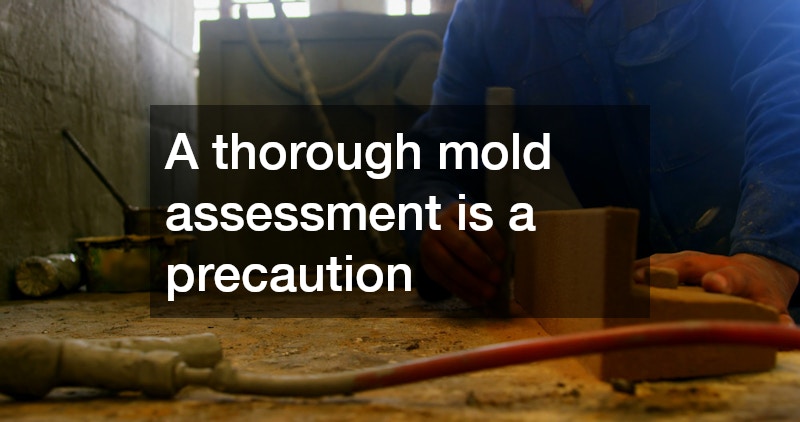Investing in fixer-upper properties can be a lucrative endeavor, but it comes with its own set of challenges, with mold being a significant one. A local mold assessment is crucial for ensuring that your investment does not turn into a financial liability. Understanding the benefits of early detection can protect you from the potential pitfalls of mold-related issues.
By identifying mold problems before renovations begin, you can develop a more accurate budget and timeline, avoiding costly surprises down the road. Additionally, addressing mold early helps safeguard the health of future occupants and preserves the structural integrity of the home.
Understanding the Risks of Ignoring Mold Issues
Mold can cause serious structural damage to a property, compromising its integrity and resulting in expensive repairs. Ignoring mold can also lead to health risks for occupants, including respiratory problems and allergic reactions. Financially, undetected mold can significantly decrease property value and lead to potential legal liabilities for the property owner.
Failing to address mold problems promptly can exacerbate these issues, turning a minor nuisance into a major concern. Property owners might face the burden of reduced rental income or difficulties in selling the property due to its compromised state. Furthermore, extensive mold infestations may require comprehensive remediation efforts, costing significantly more than initial assessments would.
Even small traces of mold left unchecked can proliferate quickly under the right conditions, making early intervention crucial. Mold thrives in damp environments, often found in fixer-uppers, as these properties may have been neglected for some time. Therefore, understanding and acting upon mold issues early on can prevent these widespread problems from developing.
The Cost-Benefit of Early Detection
The upfront cost of a mold assessment is a wise investment compared to the extensive expenses required for mold remediation. Early detection through professional mold assessments can identify issues before they cause significant damage. By tackling mold issues early, you can save thousands of dollars in future repairs, protect your property’s value, and avoid potential health-related lawsuits.
Financially, resolving mold issues early ensures that renovation budgets aren’t unexpectedly drained or redirected to address extensive infestations. Proactive mold assessments help maintain the planned allocation of resources, ensuring timely and cost-effective property development. Over time, these savings compound, making the initial assessment seemingly negligible in comparison.
Understanding the benefits of preventative measures also brings peace of mind, knowing that the property is being handled responsibly and proactively. Mold assessments offer clarity and easy decisions based on data and professional insights. Consequently, informed choices can be made to safeguard the investment and ensure a healthy living environment for future residents.
Step-by-Step Guide to the Assessment Process
Mold assessments generally begin with a visual inspection conducted by a professional, searching for signs of water damage or mold growth. Advanced testing methods may then be employed, including moisture meters and air sampling to detect mold spores. The results of these assessments will inform the property owner of the steps needed to eliminate the mold and prevent future occurrences.
These inspections are thorough, often extending to hidden areas such as behind walls or under flooring, where mold might not be immediately visible. This comprehensive approach ensures that any potential mold growth is accurately identified, allowing targeted and efficient remediation efforts. It is essential to understand that the assessment will be followed by a detailed report, outlining the findings and recommended next steps.
Post-assessment, property owners receive advice on preventative strategies, ensuring long-term protection against mold. Recognizing the areas most susceptible to mold promotes effective prevention measures like improved ventilation and moisture control. This organized process, from detection to prevention, is what makes mold assessments a critical component of property investment.
Mold assessments play a pivotal role in safeguarding investments in fixer-uppers, ensuring structural integrity, maintaining property value, and protecting health. By emphasizing proactivity in conducting mold assessments, investors can preserve peace of mind and financial security. Prioritizing mold assessments ultimately forms a vital thread in the fabric of responsible property management, offering continued assurance in maintaining the well-being of both the property and its inhabitants. Taking this important step early in the renovation process helps avoid costly repairs and legal complications later on.
Ultimately, a thorough mold assessment is not just a precaution—it is a smart investment in the longevity and success of your fixer-upper project.
.

